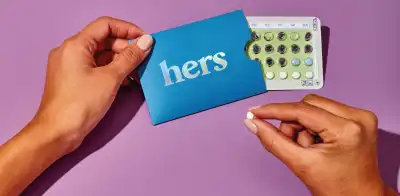Throughout his career, Scott Case has been involved in many start-ups. He was the CTO of Priceline, the “Name Your Own Price” company when it reached a billion dollars in annual sales in less than 24 months. Case, who says he is a “lunatic entrepreneur with 863 projects that could turn out to be revenue,” uses Objectives and Key Results (OKRs) for goal setting. He believes they complement his company’s cultural values of resiliency, transparency, and clarity, which he holds dear.
Five years ago when Case started Upside Business Travel, he made the use of OKRs part of the company’s culture. As the founder and leader, Case says it took some “fits and starts” in the beginning, but it became a system Upside committed to using.
“I have one job,” Case says. “Which is to set the direction of the company and what we’re trying to accomplish, get clarity around what those Objectives and Key Results are, and then get out of the way.”
At the beginning of Q1 2020, Upside had clear Objectives with key metrics in place for every aspect of the business. They were on track to achieve growth and revenue targets and even planned on how they would manage Upside’s profit margin. But as singer and songwriter Taylor Swift once said, “Just because you make a good plan, doesn’t mean that’s what’s gonna happen.”
In Upside’s case, their plan was completely derailed.
“You may have heard that there’s this global pandemic that happened and it started at the beginning of 2020,” says Case. “I think we were like everyone else thinking, ‘All right, this will be isolated geographically.’ Then it became clear that it wasn’t just an epidemic in a few places, it was a pandemic.”
Upside was suddenly trying to survive. Business travel is mostly a discretionary expense for their core customers. As clients were transitioning to remote work, some businesses curtailed spending and looked for places to save money as they grappled with the economic uncertainty. Revenue was down 95 percent by Q2. They needed to do something quickly. Thankfully, nurturing that commitment to OKRs paid off, proving, as John Doerr likes to say, “OKRs act as a vaccine against fuzzy thinking.”
After the first quarter, Case and his team discarded their OKRs to gain market share and instead reset their priorities entirely. Their two main concerns became to sustain the company by building a bridge to the future and to avoid staff layoffs. Quite a feat when almost everyone in the travel industry was already furloughing employees.
In the thick of a crisis, aspirational goals don’t always seem tangible or achievable. Case was asking himself the question many leaders ask when faced with any big problem: How do you set an Objective and then let everybody do their jobs to chase after it? The saying “many hands make light work” is not just a saying for housework — it applies to big Objectives too.
Upside pushed for an all-hands-on-deck mindset. They knew promoting business travel during a pandemic was not responsible. So the leadership team set Big Hairy Audacious Goals (BHAGs): Keep the team together and pivot to different revenue streams. They were clear about their goals and open to finding win-win situations for employees and the business as travel came to a screeching halt.
Employees were updated over Zoom and an OKR slide deck circulated that outlined these goals as their #1 Objective. Many of the Key Results (KRs) resulted in how they could generate revenue from external “bridge projects” by target dates.
Even with transparent OKRs around avoiding downsizing, some employees left to seek more secure work. But the ones who committed to stay knew they had the authority to figure out what they needed to accomplish the Objective.

Upside’s team of more than 100 business strategists, software engineers, data scientists, product managers, and sales and marketers hold a lot of brainpower. Avoiding large-scale layoffs meant identifying new ways to leverage in-house capabilities to generate revenue until business travel picked up. It would require getting teams to stretch outside of their comfort zone.
Upside’s Director of Operations Warren Zentz understands change can be uncomfortable, especially since “start-ups are like a roller coaster.” He welcomed the challenge to get to the other side of the pandemic. Repositioning Upside’s OKRs illuminated an opportunity they might otherwise have ignored: to become consultants to travel-adjacent companies. This also exposed employees like Zentz to different sides of travel and other industries, This, in turn, helped Zentz navigate various bridge projects during 2020.
Notably, one OKR helped to redirect Upside Business Travel into a previously untapped business opportunity. With a smile across his face, Case says, “We launched an entirely new product line called Upside Financial that was targeted towards helping small businesses that needed PPP loans.”
Case emphasizes that OKRs as a goal-setting tool aligns well with companies that value both innovation and longevity. “There was never a doubt in my mind when the pandemic hit that we as an organization were going to be able to find a way to weather through it. I didn’t know what it was going to be and I didn’t know what constraints we would have. But I had great confidence that we had a group of people that had embraced these ideas,” Case adds.
“If you aren’t uncomfortable, I don’t believe you’ll ever grow,” Zentz explains. “Instead of being afraid of the unknown, I embraced it and got excited about the opportunity to work with a new team, learn a new industry, and get curious about how I could hone my expertise to tackle a new challenge.”
*This article has been refreshed to include recently received information.
__Update: __Due to the ongoing impact of the pandemic on the travel industry, Upside decided to shut down its business in September 2021.*
If you’re interested in starting our OKRs 101 course, click here.



